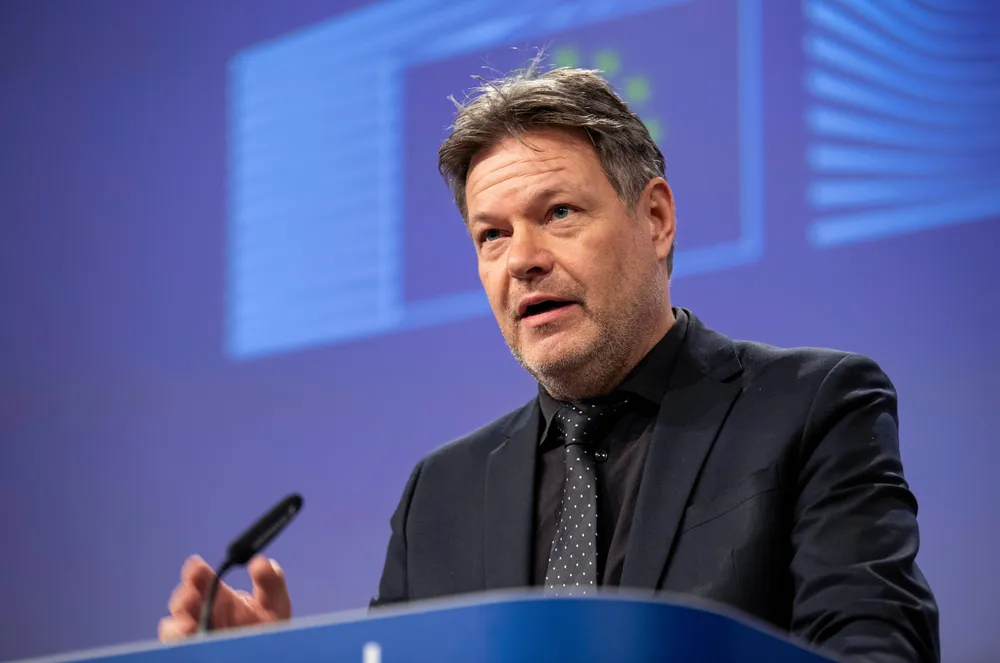Beware of the Dunkelflaute! | How Germany gears up to be ready for 'times of little wind and sun'
Climate minister Habeck presents Power Plant Security Act with plan to tender off 12.5GW in mostly hydrogen-ready power plants as Europe’s largest economy switches to mostly renewable power

Germany’s government has kicked off a six-week consultation period on a new Power Plant Security Act that aims at making sure Europe’s largest economy has sufficient electricity also at “times of little wind and sun” although renewables make up the overwhelming majority of its power generation.
To ensure energy security, the draft of the new legislation proposed by economics and climate minister Robert Habeck foresees tenders for 12.5GW of mostly hydrogen-ready power plants as well as 500MW of long-term storage capacity.
“We are making the electricity system fit for high proportions of renewable energies and are also providing additional security for times of little wind and sun,” Habeck said when presenting the draft Wednesday.
Wind and solar alone already meet 43% of Germany’s power needs (other renewables such as hydro or biomass are less weather dependent). The increased reliance on intermittent renewables has led to concerns about whether the country’s energy system can provide sufficient electricity to industry and households also on days of simultaneous lulls in wind and solar generation. The German language even has a word for that - ‘Dunkelflaute’, or ‘dark lull’.
Dunkelflauten are rare, but in the past decade have occurred occasionally during autumn or winter days, especially when snow on top of rooftop solar installations has brought solar generation to near zero. As more and more heating systems are supposed to switch to electricity-backed heat pumps, the potential problem is expected to grow further in coming years.
The Power Plant Safety Act is slated to bring “threefold momentum to the power plant sector”, according to Habeck.
“Firstly, the modernisation towards a decarbonised power plant park is being initiated because we have agreed on a concrete hydrogen conversion path for some of the power plants,” he said.
“Secondly, the development of the new hydrogen power plant technology is being promoted and an important acceptance signal for the hydrogen ramp-up is being sent and thirdly, the coal phase-out is being additionally secured through the construction of new power plants and thus also security of supply.”
In addition, the Power Plant Safety Act represents the bridge to a comprehensive, technology-neutral capacity mechanism that is also intended to use demand flexibility and storage in particular, the minister added.
The legislation is part of a new power plant strategy, and as a ‘first pillar’ foresees tenders for 5GW in hydrogen-ready gas-fired power plants as well as 2GW of upgrades to make already operating plants hydrogen-ready – all aiming at decarbonising Germany’s power plant fleet which today in part is still fuelled by lignite.
This 7GW in capacity from their eighth year of operation is supposed to be switched to be run on green (renewables-based) or blue (gas-based with carbon capture and storage) hydrogen, in line with Germany’s national hydrogen strategy.
Another 500MW are slated to be auctioned off as pure hydrogen power plants, and 500MW for long-term storage.
For the power plants, investment costs (Capex) and, starting from the switch to hydrogen, the difference in costs between hydrogen and natural gas (Opex) for 800 full hours of use per year are proposed to be subsidised.
As Germany targets to become carbon-neutral by 2045, these plants at some point would also need to switch to a carbon-neutral fuel source (such as green hydrogen or biogas), but the ministry didn’t explain how or when that should happen. But rising CO2 prices in the EU's emitting trading system (ETS) will likely result in those plants also to be hydrogen-ready.
Tenders are likely to take place during the first half of next year.
Germany’s energy sector was relieved that the Power Plant Security Act after some delays finally was presented, even if no concrete dates for tenders were given.
Both the BDEW, and VDMA Power Systems, a group representing engineering and manufacturers in the energy sector, stressed that the power plant security act should also be linked to combined heat and power (CHP) capacity.
“The necessary links to the heating transition are missing. Combined heat and power plays a crucial role here,” VDMA Power Systems managing director Dennis Rendschmidt said.
“In order for the expansion of this technology to really take place, the Power Plant Security Act must be extended by the federal government as quickly as possible. Otherwise, the plants necessary for security of supply will not be built due to the uncertainty for investors."
(Copyright)